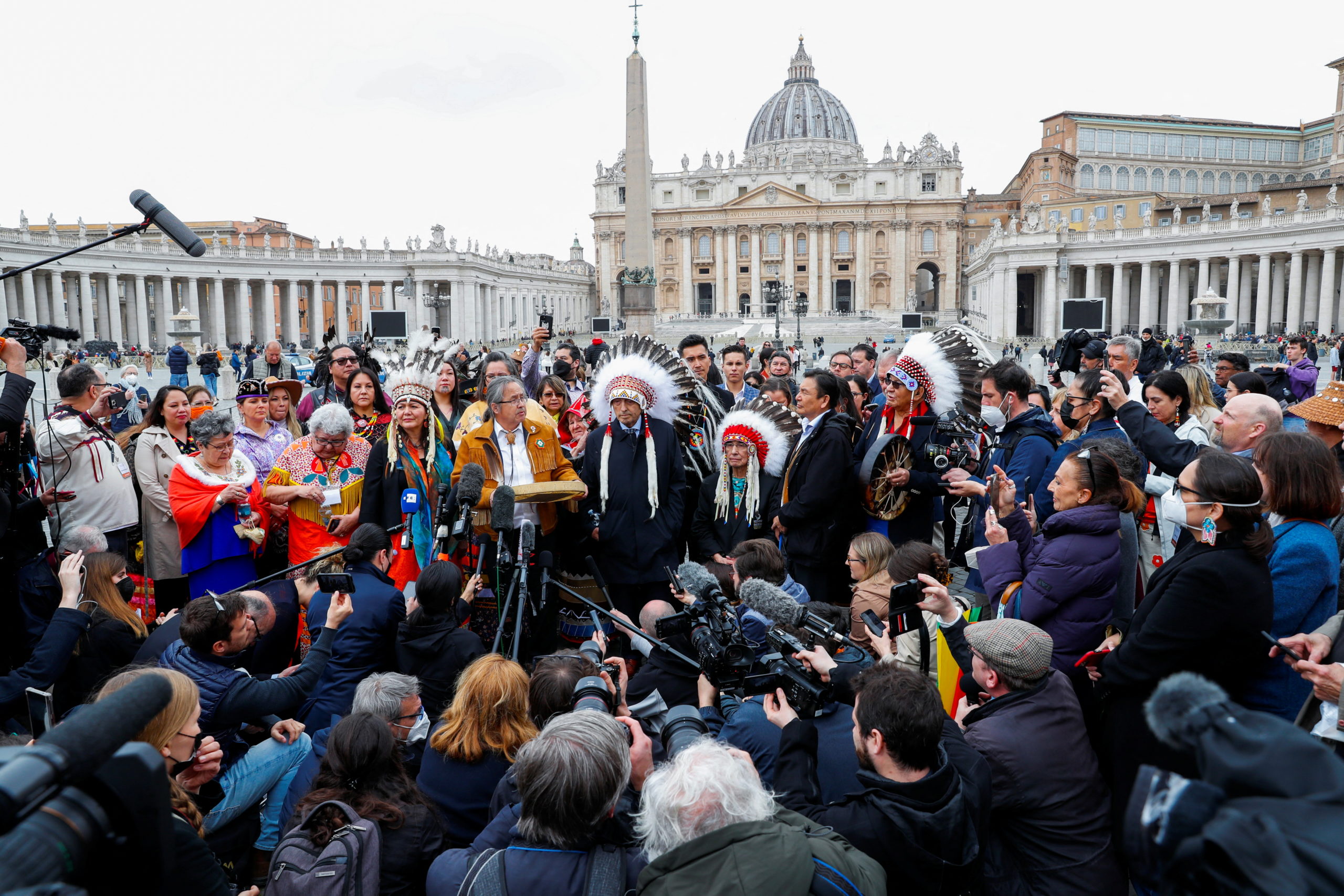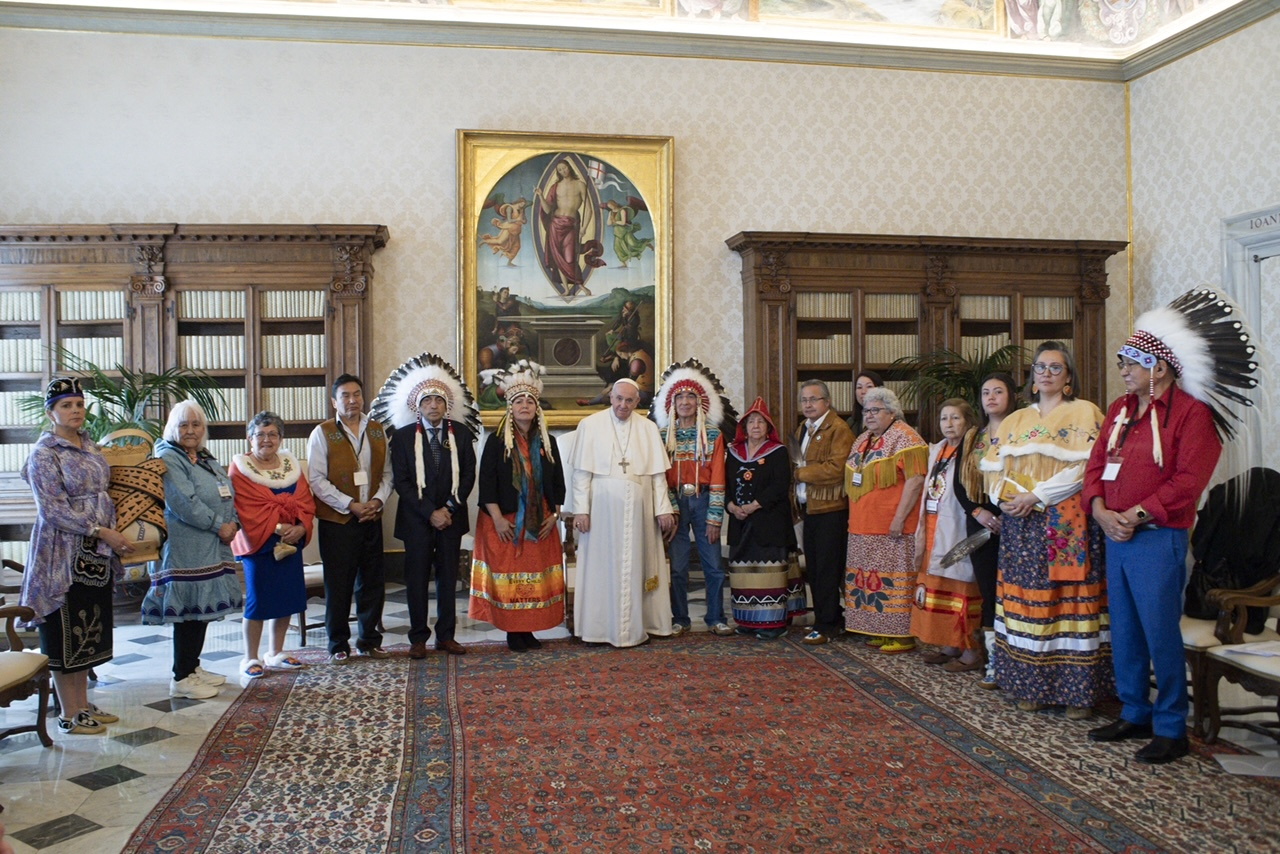Indigenous leaders from Canada seek dialogue with Vatican on repatriation of artifacts
One prominent item is a kayak from the Inuvialuit region in Canada's Western Arctic.

VATICAN CITY — Canadian Indigenous leaders seeking an apology for the Catholic Church’s role in notorious residential schools where children where abused also want to start a dialogue on the return of native artifacts held in the Vatican Museums.
“My view is that we should sit down with Church officials and begin discussions about repatriation,” Phil Fontaine of the Sagkeeng First Nation and former National Chief of the Assembly of First Nations (AFN), told Reuters.
Fontaine, 77, was part of an AFN delegation that spoke to the pope privately for two hours on Thursday. They want Pope Francis to travel to Canada to make an official apology there for the schools where Indigenous children were abused and their culture denied.
Fontaine and other participants said the return of artifacts also came up in three meetings with the pope this week.
[A Canadian Inuit group is sending delegates to a Vatican meeting]
In 1925, Pope Pius IX held a world exposition of Indigenous artifacts, displaying more than 100,000 objects, most sent to the Vatican by Catholic missionaries from around the world.
Nearly half of them later formed a new Missionary Ethnological Museum in Rome and were transferred to the Vatican Museums in the 1970s.
One item the delegates saw is a kayak made of wood and sealskin by the Inuvialuit people of the Mackenzie Delta of the Western Arctic and believed to be between 100 and 150 years old.
While one Inuvialuit leader last year demanded its immediate return to Canada, Fontaine called for a calm, studied solution to repatriation.
“We have to decide where we want those to go and how they are going to be protected, what kind of environment they will be placed in,” Fontaine told Reuters in St. Peter’s Square.
“There are museums all over the world with Indigenous artifacts from Canada and so this has to be a very involved discussion with many different jurisdictions,” he said.
That would have to include determining if items were gifts or taken without permission, he said.
“It isn’t unique to the Catholic Church but that does not prohibit the Catholic Church and its highest authorities from beginning discussions on what to do about these artifacts and their repatriation to Canada,” he said.
The Vatican Museums often lend items to other institutions and have said the kayak might go on tour after it is restored.
Additional reporting by Antonio Denti.
